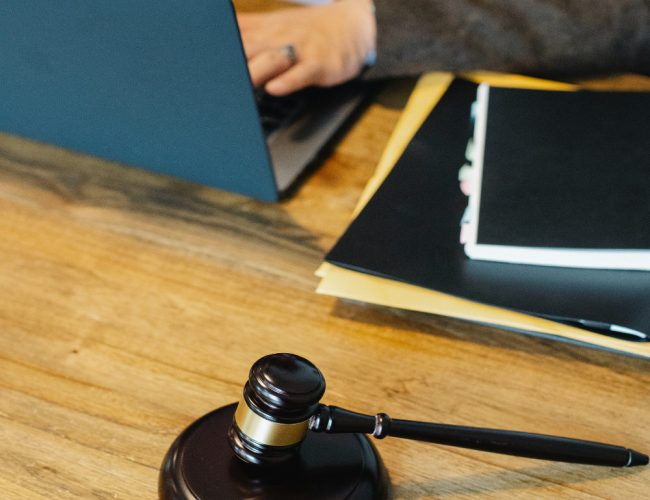At Home
All people living in the United States, including undocumented immigrants, have certain U.S. Constitutional rights. If you are undocumented and immigration (ICE) Officers knock on your door, know that you have the following rights:
You do not have to open the door. You do not have to open the door or let the officers into your home unless they have a valid search warrant signed by
a judge.
An ICE deportation warrant is not the same as a search warrant. If this is the only document they have, they cannot legally come inside unless you verbally
agree to let them in.


If the officers say they have a search warrant signed by a judge, ask them to slide it under the door or hold it up to a window so you can see it.
If the warrant does not have your correct name and address on it and is not signed by a judge you do not have to open the door or let them inside.
If at any point you decide to speak with the officers, you do not need to open the door to do so. You can speak to them through the door or step outside
and close the door.
You have the right to remain silent. You do not need to speak to the immigration officers or answer any questions.
If you are asked where you were born or how you entered the United States, you may refuse to answer or remain silent.
If you choose to remain silent, say so out loud.
If they ask you to stand in a group according to immigration status, you do not have to move, or you can move to an area that is not designated for a particular
group.
You may show a know-your-rights card to an officer that explains that you will remain silent and wish to speak to a lawyer.
You may refuse to show identity documents that say what country you are from. Do not show any false documents and do not lie.
You have the right to speak to a lawyer. If you are detained or taken into custody, you have the right to immediately contact a lawyer.


Even if you do not have a lawyer, you may tell the immigration officers that you want to speak to one.
If you have a lawyer, you have the right to talk to them. If you have a signed Form G-28, which shows you have a lawyer, give it to an officer.
If you do not have a lawyer, ask an immigration officer for a list of pro-bono lawyers. You also have the right to contact your consulate. The consulate may be able to assist you in locating a lawyer.
You can refuse to sign any/all paperwork until you have had the opportunity to speak to a lawyer. If you choose to sign something without speaking to a lawyer, be sure you understand exactly what the document says and means before you sign it.
You have the right to ask for a lawyer, even if you don’t currently have one.
If you do have a lawyer, you have the right to communicate with them. If you’ve completed and signed Form G-28 (Notice of Attorney Representation), provide it to the officer.
If you don’t have a lawyer, request a list of free or low-cost (pro bono) immigration attorneys from the officer. You also have the right to contact your home country’s consulate, which may help you find legal assistance.
You are not required to sign any documents until you’ve had the chance to speak with a lawyer. If you decide to sign something without legal advice, make sure you fully understand what the document says and implies before signing.


In Public
All people living in the United States, including undocumented immigrants, have certain U.S. Constitutional rights. If you are undocumented and immigration (ICE) officers stop you on the street or in a public place, know you have the following rights:
You have the right to remain silent. You do not need to speak to the immigration officers or answer any questions.
You may ask if you are free to leave. If the officer says no, you may exercise your right to remain silent.
If you are asked where you were born or how you entered the United States, you may refuse to answer or remain silent
If you choose to remain silent, say so out loud.
You may show a know-your-rights card to the officer that explains that you will remain silent and wish to speak to an attorney.
You may refuse to show identity documents that say what country
you are from.
Do not show any false documents and do not lie.
You may refuse a search. If you are stopped for questioning but are not arrested, you do not have to consent to a search of yourself or your belongings, but an officer may “pat-down” your clothes if he or she suspects you have a weapon.
Even if you do not have a lawyer, you may tell the immigration officers that you want to speak to a lawyer.
If you have a lawyer, you have the right to talk to them. If you have a signed DHS Form G-28, which shows you have a lawyer, give it to an officer.
If you do not have a lawyer, ask an immigration officer for a list of pro-bono lawyers.
You also have the right to contact your consulate. The consulate may be able to assist you in locating a lawyer.
You can refuse to sign any/all paperwork until you have had the opportunity to speak to a lawyer.
If you choose to sign something without speaking to a lawyer, be sure you understand exactly what the document says and means before you sign it.

Contact Danish Shahbaz Today
Procrastination can complicate any legal matter and delay the necessary resolution. Whether you are facing an immigration matter or a serious personal injury, time is of the essence. For the best possible outcome in your case, contact Danish Shahbaz as soon as possible to set up an in-depth review of your potential case. We look forward to getting to know you, hearing your story, and providing answers, resources and options.


